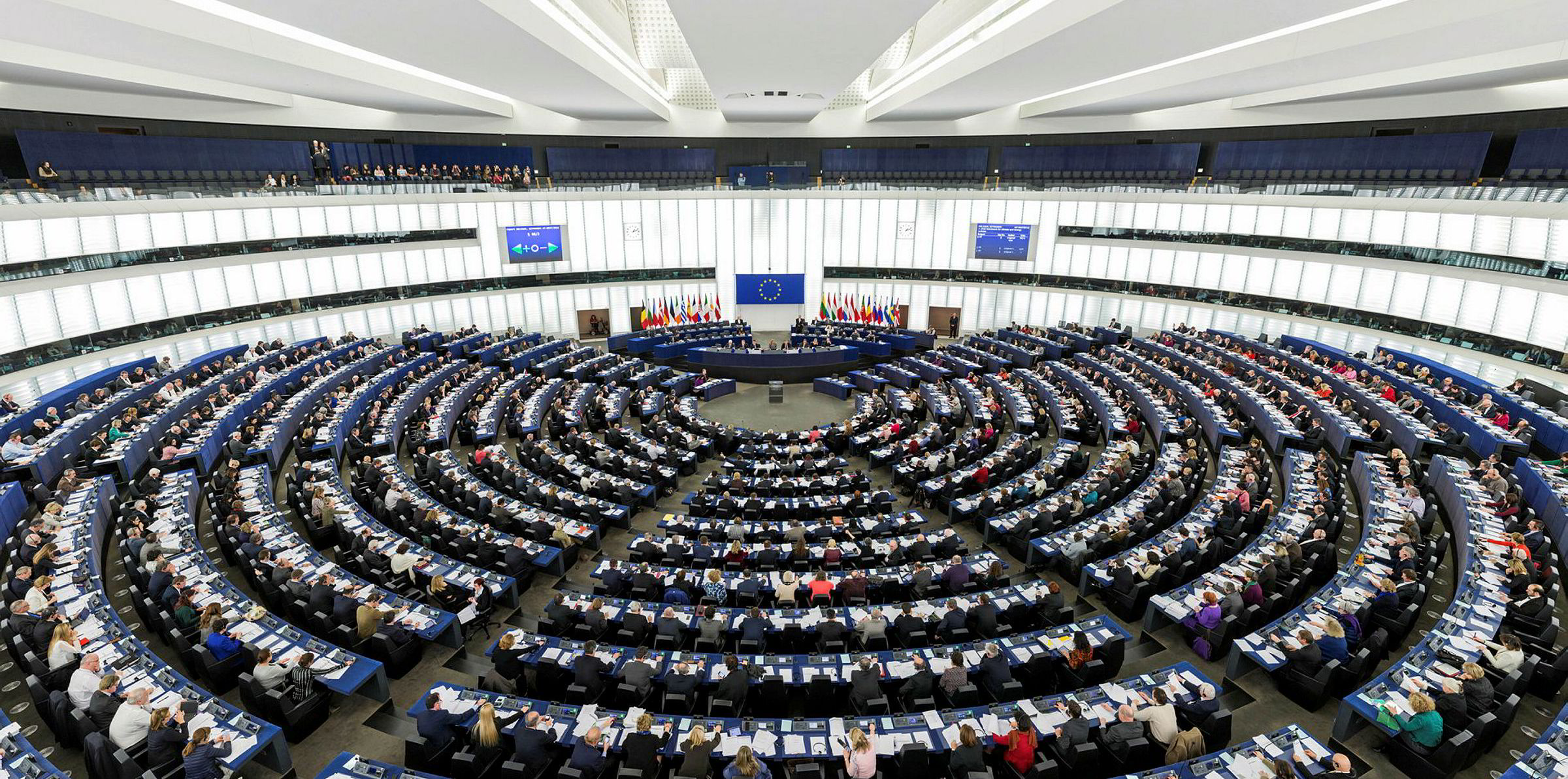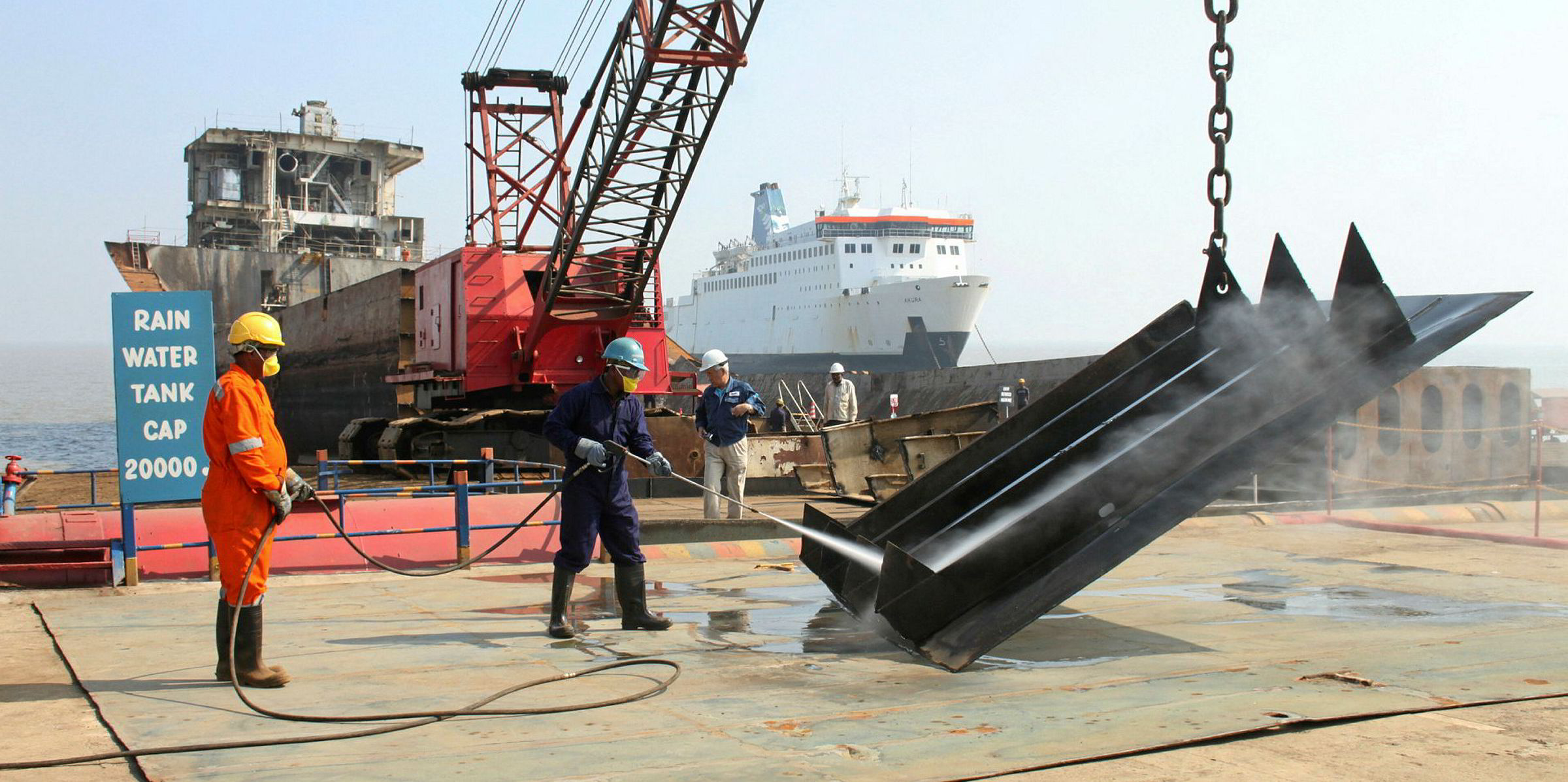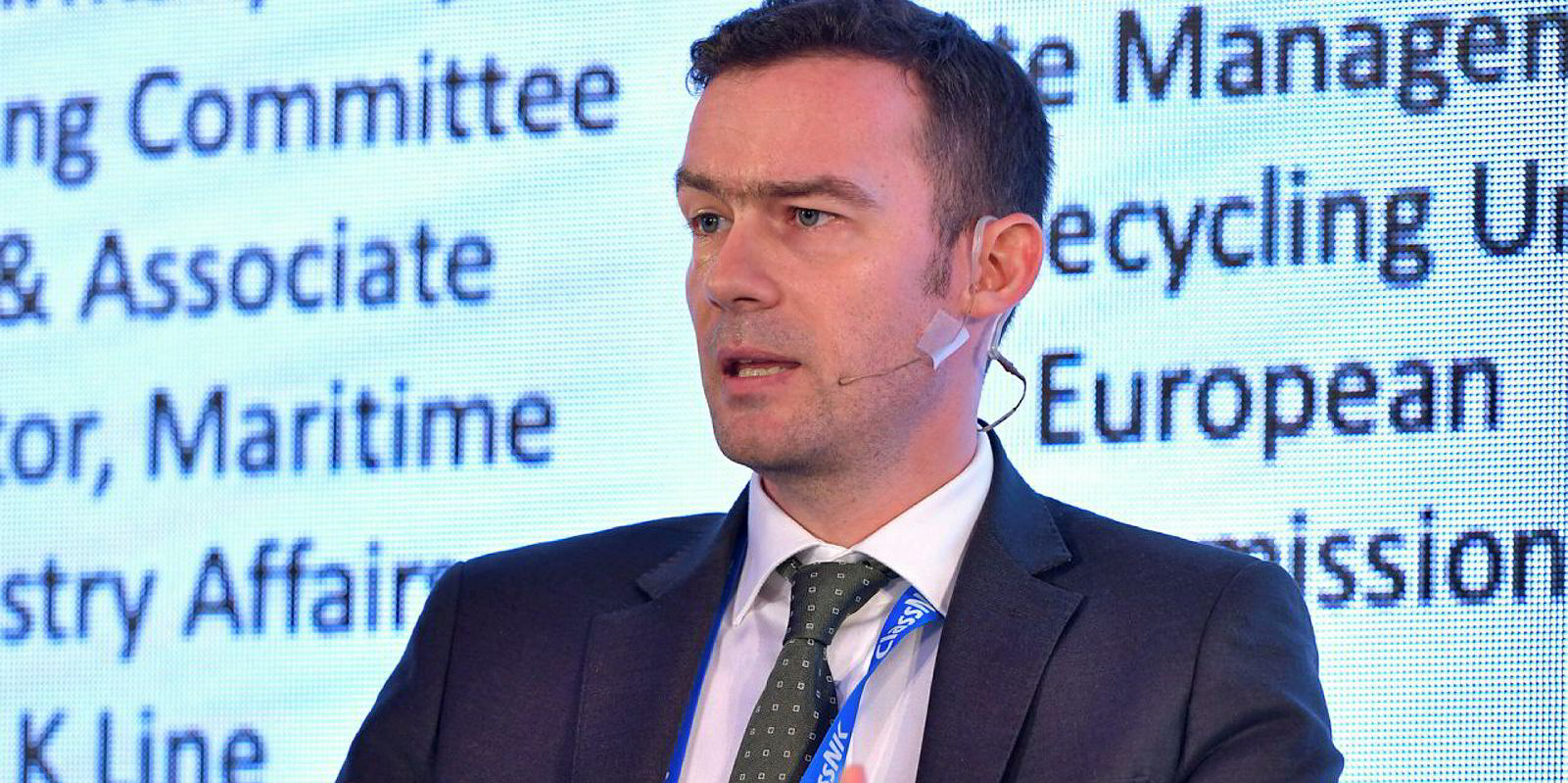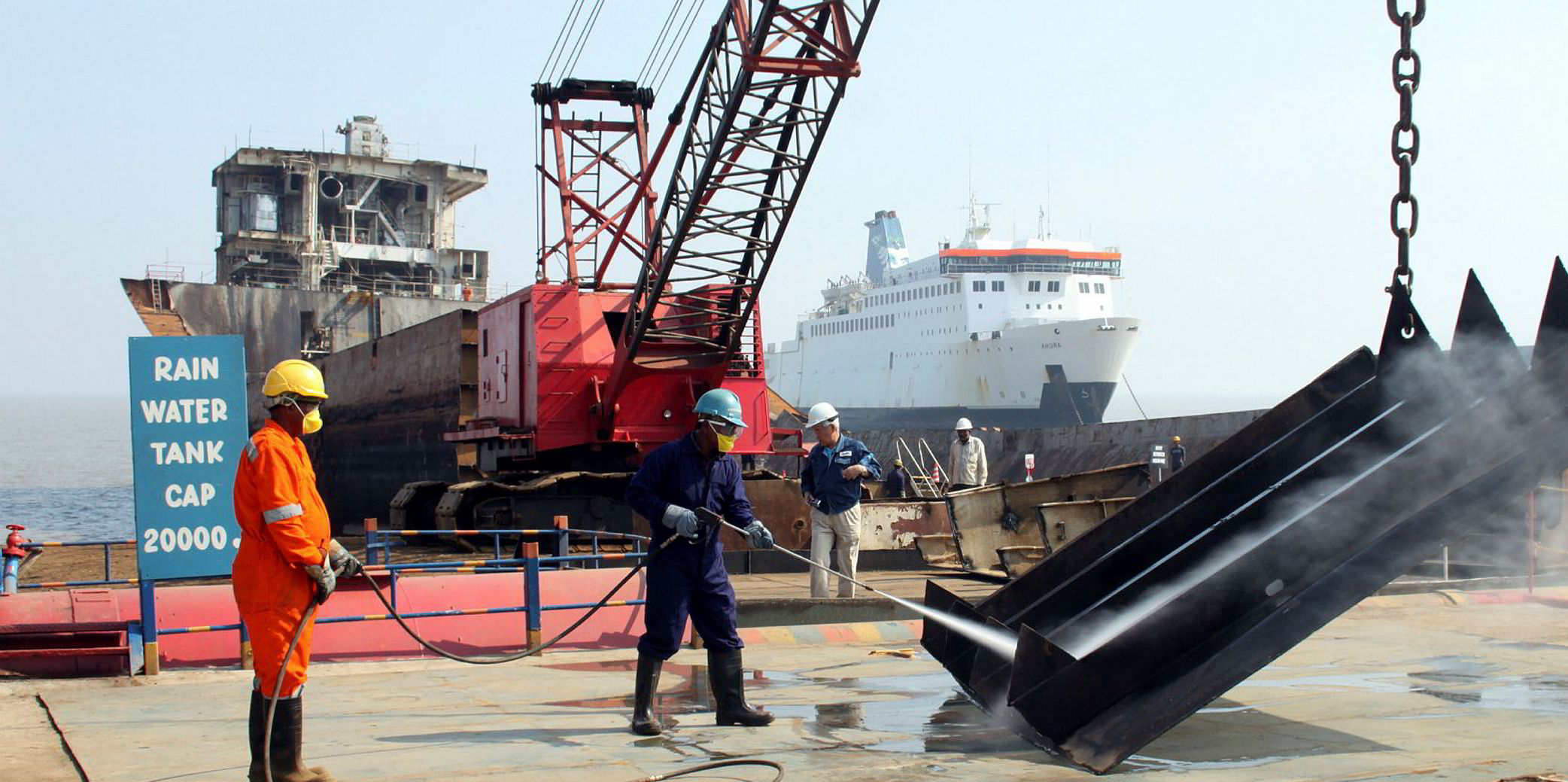Fragmented policymaking is hurting Europe’s shipping and should be streamlined to make the industry more competitive, the head of the continent’s main owners’ association says.
After this week’s European Union elections, policy portfolios should be reshuffled and shipping-related activities put under one roof, Panos Laskaridis, president of the European Community Shipowners’ Associations (ECSA), argues.
“The current fragmentation of responsibilities has been counterproductive,” Laskaridis tells TradeWinds in an interview at his offices in Athens.
Recycling rethink
Τhe Greek owner cites wrangling over Europe’s shiprecycling rule as a case in point.
“The [European] Commission departments for transport, climate and environment all pull in different directions ... everybody tries to devise their own rules,” Laskaridis says.
As a result, shipyards on the Indian subcontinent are still excluded from an EU-approved list of yards qualified to dismantle European-flagged ships, even though some are said to be in the pipeline for eventual inclusion.
Restricting scrapping to European yards is “protectionist” and “unacceptable”, Laskaridis says.
“Several European owners are just switching flags before scrapping their ships,” he adds.
Undermining HK
This is seen as undermining the Hong Kong International Convention for the Safe and Environmentally Sound Recycling of Ships, a separate international document that was agreed nine years ago but has still not entered into force as it has not been ratified by a sufficient number of countries.
One solution, Laskaridis suggests. would be to return as many shipping-related EU activities as possible to the brief of the European Commission’s Directorate-General for Mobility and Transport.
In addition, they should be put directly under the oversight of one of the three vice presidents of the European Commission — the EU’s main executive organ that also has rule-making powers and acts as the bloc’s regulatory watchdog.
“Ideally, there should be a European commissioner dedicated to shipping, but that’s something for the future,” Laskaridis says.
In March, the ECSA submitted a full-range of policy proposals for the next five years to EU authorities in the hope they would help shape the agenda for the new European Parliament and Commission that will emerge from the May elections.

They included a call to maintain the EU’s free-trade agenda, to support the creation of attractive ship financing schemes and to “develop a benchmarking exercise to map out what third countries are offering in terms of [the shipping industry’s] competitiveness, to ensure the EU is not losing out”, according to an ECSA document.
Forty percent of world trade is carried on European ships. That’s a huge weapon for Europe, which is tackling enormous problems and lacks a common economic, foreign and defence policy
Laskaridis says these initiatives are not falling on deaf ears.
In a recent meeting, outgoing transport commissioner Violeta Bulc expressed support for a long-held ECSA position that European oceangoing tramp shipping represents a strategic asset.
International rules
Bulc also said that shipping is an international activity that requires international rules, which must be taken at IMO level.
“We hope these views will be reflected in the case file Ms Bulc will bequeath to her successor and shape future policy,” Laskaridis says.
European institutions have already softened somewhat their initial position on matters of greenhouse emissions and the IMO.
“The EU, especially the European Parliament, had a very aggressive stance on this,” he says.
“Shipping tried very hard to convince them to allow the IMO to legislate and then review the situation in 2023. It was somewhat of a backdown from their initial, very hard position.”
Despite this progress, the general feeling among the continent’s shipowners is that policymakers still fail to sufficiently appreciate their industry and that they are still more likely to be swayed by other, more vocal lobbies, such as environmentalists.
Competitors’ ships
“If Europe loses its fleet, it will have to carry its goods on competitors’ ships,” Laskaridis says. “Europe still hasn’t realised how important that is.

“Forty percent of world trade is carried on European ships. That’s a huge weapon for Europe, which is tackling enormous problems and lacks a common economic, foreign and defence policy.”
Economic contribution
According to ECSA figures, EU owners control 60% of the world’s containerships and 43% of the globe’s oil tankers, in terms of gross tonnage.
The industry gauges its direct economic contribution to the EU economy at €57bn ($64bn), with 640,000 people employed. Including its indirect impact, it says it is worth a total of €147bn and 2.1 million jobs.
The ECSA was founded in 1965 and has shipowners’ organisations from 20 different European countries as members.
This includes Norway, which is not part of the EU, and the UK, which is set to exit the bloc.







